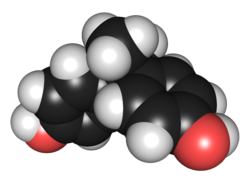-
 Esterification
Esterification
-
 Arytenoid
Arytenoid
-
 Spinach
Spinach
-
 Neutralist theory
Neutralist theory
-
 Partial eclipse
Partial eclipse
-
 Diurnal parallax
Diurnal parallax
-
 Colonoscopy
Colonoscopy
-
 Radiation-oncologist
Radiation-oncologist
-
 Debye force
Debye force
-
 HSR
HSR
-
 Astrophysics
Astrophysics
-
 Second
Second
-
 Nephelene-syenite
Nephelene-syenite
-
 Luyten, Willem
Luyten, Willem
-
 Grained rock
Grained rock
-
 Urine M&C
Urine M&C
-
 Supervolcano
Supervolcano
-
 HDLC
HDLC
-
 Cryovolcanism
Cryovolcanism
-
 Virophage
Virophage
-
 REACH
REACH
-
 Grapefruit
Grapefruit
-
 Proxy
Proxy
-
 M101
M101
-
 Extended area
Extended area
-
 Montpellier maple
Montpellier maple
-
 Bradypnoea
Bradypnoea
-
 Flyby machine
Flyby machine
-
 Partial unbundling
Partial unbundling
-
 Graphics software
Graphics software
Endocrine disruptor
An endocrine disruptor is a molecule which mimics, blocks or changes the action of a hormone and interferes with the normal functioning of an organism.
Mechanism of action of the endocrine disruptors
The endocrine disruptors have three mechanisms of action. They may:
- mimic the action of a hormone because of their similar molecular structure to the natural hormone (such as bisphenol A which has estrogenic properties);
- block the action of a hormone by saturating its receptor;
- interact with the effect of the hormone such as the bromide fireproofing agents which interfere with the function of thyroid hormones.
Endocrine disruptors and hazards to health
The endocrine disruptors can act at very low doses in the same way as hormones. Whilst the harmful effects may be seen directly on exposed people, the effect may pass through generations with other compounds. Distilbene, a compound prescribed to prevent miscarriages, for example, caused genital malformations in the children of women who were treated.
The action of other endocrine disruptors is occasionally so small that the effects on health have not yet been proven and are difficult to identify (this applies to bisphenol A).

Bisphenol A is an endocrine disruptor, the hazards of which appear to be difficult to demonstrate. © DR
Latest
Fill out my online form.



